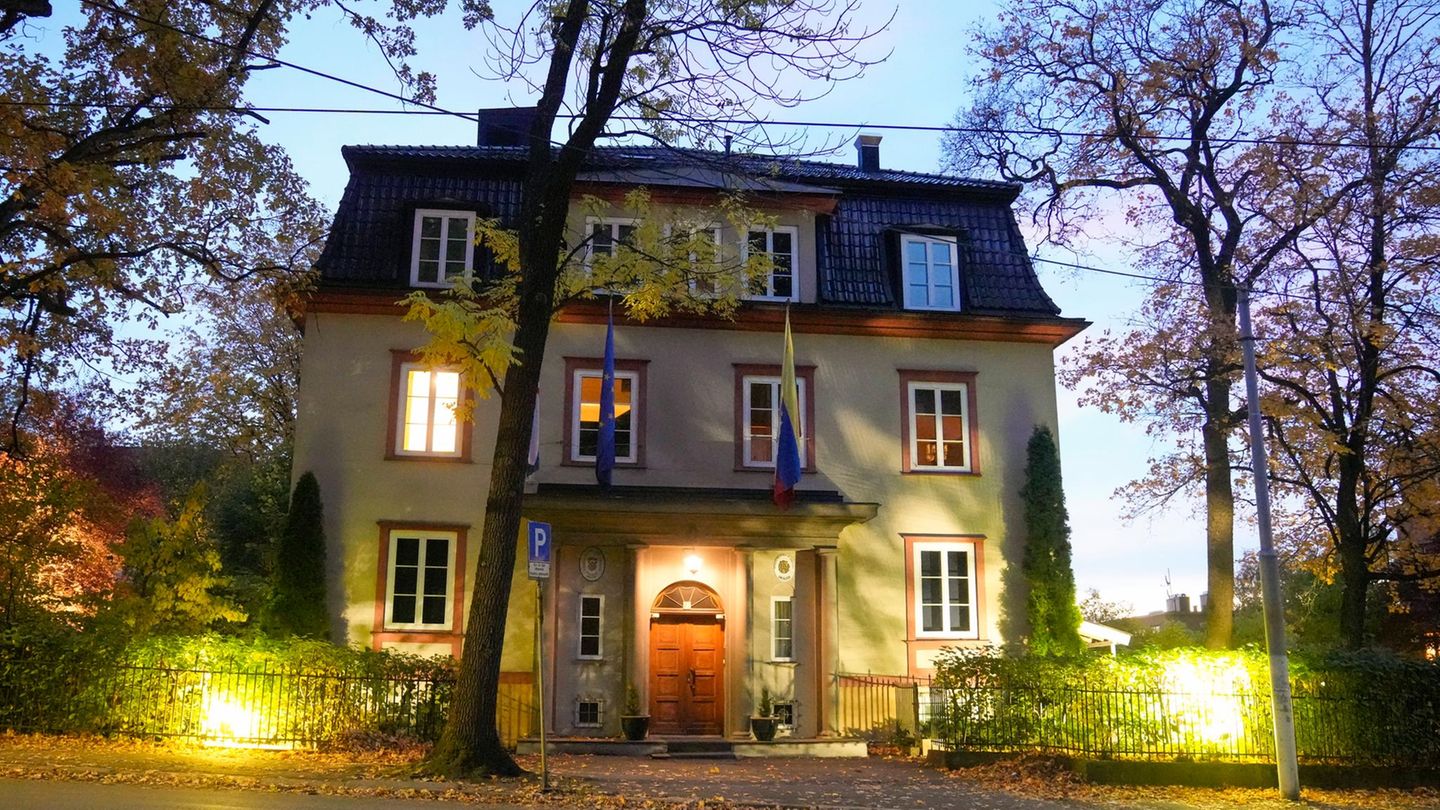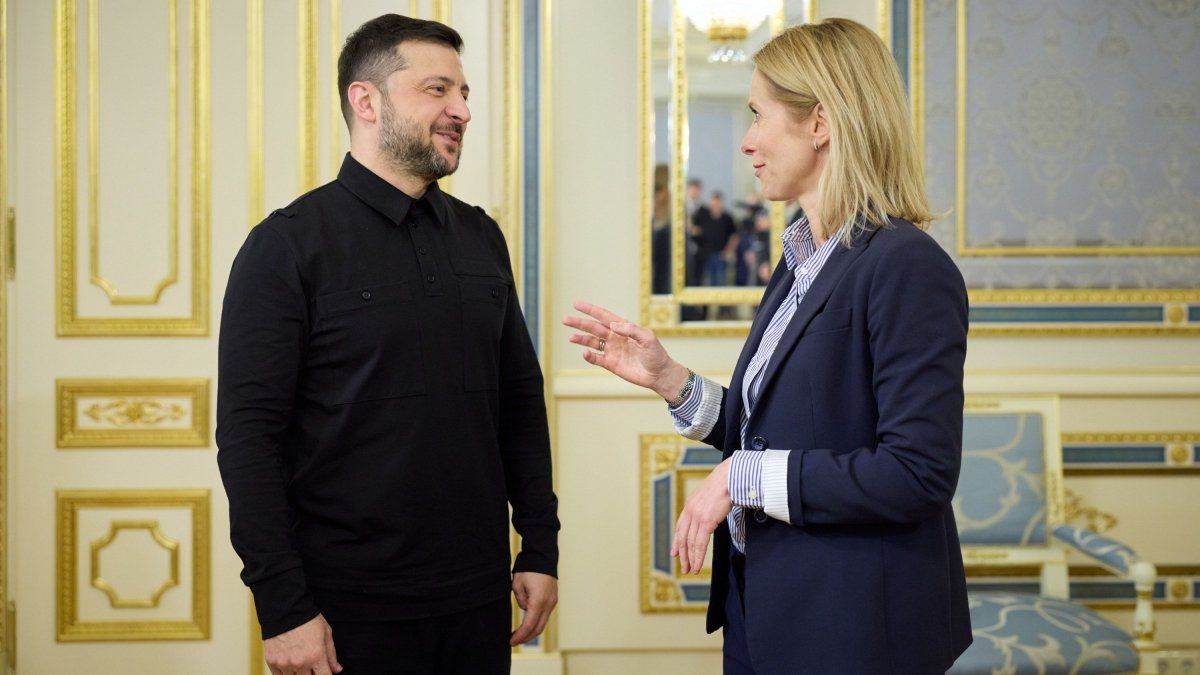From 2006 to the present, the control of the territory by the militias -in addition to mafia groups such as Comando Vermelho, among others- grew and together they control 20% of the metropolitan region of Rio, according to data from the Novo Mapa dos Grupos Armados from the Fluminense Federal University.
And the intervention of the armed forces also often ends in episodes of violence.
But in Babylon, the discourse that a large part of its 5,500 inhabitants repeat is one of harmony and they differ from others, even bordering ones, which they see as areas taken over by criminal gangs.
As you go up the steep stairs, the landscape goes from narrow streets, houses with walls painted with murals, to a greener one, with plants that remind you that it is, as the popular song by Jorge Ben Jor says, “ a tropical country.
The buildings are newer, stacked, with exposed brick and sheet metal. Upon reaching the top of the hill, you can see Copacabana beach, which is just 100 meters from the base.
The door of María Benedita Pinto’s house is open and she can be seen sitting with her little granddaughter dressed as a princess on her lap and her son Marcelo Augusto in front of them. “I came to Rio alone at the age of 9 to work as a domestic,” she tells Télam.
He moved to the neighborhood in the 1980s, when “you counted the houses on your fingers,” but today it has become a community that he says he doesn’t “need the slightest desire to leave.”
He says that about five years ago there have been no shots because “there is drug trafficking, but not armed.” Instead, he warns, like all the inhabitants of Babilonia, that a few meters from the neighborhood, in neighboring Chapeu Mangueira, there are criminal gangs and recommends not to go near them.
“We continue with the same needs,” he says, but comments that on Sunday he will vote for Lula. “My vote is already defined, in the absence of someone (better) I am going to vote for Lula,” he clarifies, although he admits that he always voted for the PT.
His 23-year-old son says that he was born and raised in Babylon, something that is repeated as an identity claim among the neighbors.
“Compared to the favelas in the south, this is the quietest community when it comes to housing, police and crime, because Rio de Janeiro is not easy, it’s quite complicated,” he says and says that he doubts about his vote: “I am between Lula and Ciro (Gomes, PDT candidate)”.
Both are critical of the Bolsonaro government because “many people” they know were left homeless and because the PT’s flagship program, Bolsa Familia, changed. In any case, Pinto says he never needed subsidies because he always worked.
Last night they saw the debate, which they define as a “lack of respect” because the candidates “fought among themselves” and “do not think of the people because they never lacked food on their tables.”
The public and private tentacles do not reach Babilonia in the same way as at the base of Morro, but neither – with exceptions such as a small orchard or different minimal churches – is there an organization of the community itself.
In fact, an association of inhabitants of Babylon receives the correspondence because the mail does not reach their doors.
“Unfortunately there is no work for the community, it is all very individual, if someone does a project they want to earn money just for themselves and they don’t think about everything,” says a neighbor who does not want to give her name.
Marli González has lived there for more than 50 years, she has a kiosk on one side of the hill with railings that act as a bar and where two neighbors drink beer. She will vote for Lula despite not being obliged to have turned 70 and she defines Bolsonaro as “the bread that the devil kneaded.”
Jay López is 18 years old, wearing his small red-dyed curlers and eyeliner, and replies that he will vote for Lula by making the letter “L” with his fingers.
He was born in Babilonia, but during 2020 and 2021 he moved to the Maré complex – the largest set of favelas in Rio – where he lived with his father.
Maré, the favela in which Rio de Janeiro councilor Marielle Franco, murdered in 2018, was born and lived, is currently one of the favelas with the most cases of violence due to disputes between criminal gangs, militias and military operations.
When asked how those years were, he smiles and takes a long sigh like someone wondering where do I start?
“It was very complicated, it happened to me that I was at school – which was full of bullet holes – and there were shots and all the students had to throw themselves on the floor. In addition, near my house there were armed gangs, bandits, traffickers, it was very different from here,” he tells Télam, adding: “It’s quiet here, there are hardly any shots.”
Luisa Onorato da Silva, a 67-year-old black, northeastern and retired woman, has a cane in her hand and is in line at the “Chapeu (hat) Mangueira Babilonia” municipal health center, one of the few expressions of the state there.
He says that he worked “on everything” and lists: “At a family home, in a hotel, a restaurant.” Then “I collected money and bought a barraquinha (alluding to his house) here and I only intend to leave when time takes me.”
He refers to Bolsonaro as “the president who is about to leave” and says that he did nothing, “only the prices of things increased a lot.”
Waldemiro does not say his last name, but comments that he is 57 years old and works as a building manager. And as he waits for medical attention from the edge of one of the thousands of stairways that wind through Babylon, he says that he will vote on Sunday, but has not yet decided for whom.
“I’m going to vote for the old man, for Lula,” says another neighbor who does not give his name, only points out that he is 38 years old and defines the neighborhood as “quiet even for others.”
Mauro Bernadino attends the local D’villy dedicated to renting clothes for parties. He says that he set up that business in the garage of his house because the chain he worked for, also dedicated to clothing, closed during the pandemic. He will vote for Bolsonaro despite having supported the first three PT governments.
In line with his candidate, he doubts the effectiveness of the vaccines against Covid-19, he exonerates the president, because he repeats, like him, that he does not control Congress, and for this reason he supports making alliances with the Centrao (parliamentary group that is accused of selling his support to governments in exchange for budget and charges).
Pamela Rodríguez is a young black woman with a head full of small blonde braids. She and her family are going to vote for Lula because for them “he was the best, for many years he helped many communities” and despite being only 18 years old, she says she knows what the former president did, such as the “Bolsa familia” .
Bolsonaro “was very difficult, he increased prices a lot in the supermarket and with issues that are not as good as before,” he says.
He believes that “it is very difficult for young people to get involved in politics”, but that his friends “are going to vote for Lula, I think the majority”.
He wants the next president “to take care of giving something better to children, a lot of studies are needed.”
Source: Ambito
David William is a talented author who has made a name for himself in the world of writing. He is a professional author who writes on a wide range of topics, from general interest to opinion news. David is currently working as a writer at 24 hours worlds where he brings his unique perspective and in-depth research to his articles, making them both informative and engaging.




